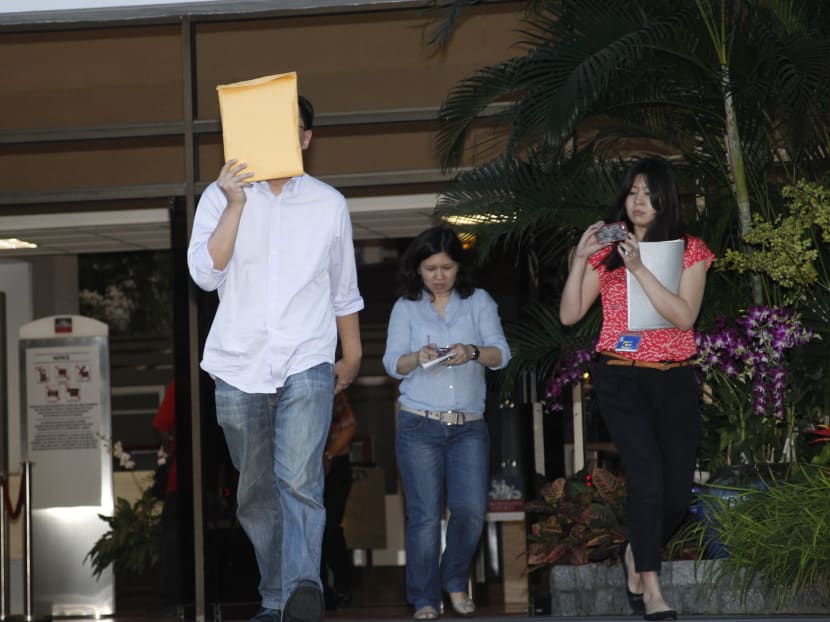CPIB chief ‘deeply sorry’, system strengthened
SINGAPORE — Staff at the Corrupt Practices Investigation Bureau (CPIB) now undergo mandatory credit bureau checks and those holding key positions have enforced job rotation.

CPIB Officer, Edwin Yeo who is facing fraud charges, leaves the Subordinate Court after he managed to post bail..Photo: Ernest Chua. 24 July 2013.
SINGAPORE — Staff at the Corrupt Practices Investigation Bureau (CPIB) now undergo mandatory credit bureau checks and those holding key positions have enforced job rotation.
These are among the tightened financial and audit procedures put in place at the bureau, following an independent review conducted after the alleged misdeeds of CPIB officer Edwin Yeo Seow Hiong.
Movement of operational funds associated with the CPIB’s Field Research and Technical Support Branch — where Yeo was the Assistant Director — and how the funds are used is now tracked more closely. The number of senior supervisory staff there has also been increased, in line with recommendations by the independent review panel, the CPIB said.
The three-member panel, appointed by Prime Minister Lee Hsien Loong, was led by then-Deputy Secretary of Development at the Ministry of Finance, Mr Lim Hock Chuan.
All public officers are required to file annual declarations of their financial liabilities and confirm they are free from financial embarrassment. A CPIB spokesperson said that in Yeo’s case, he “may not have disclosed the full extent and nature of his liabilities”.
CPIB Director Eric Tan said his agency would learn from this incident. He added: “I am deeply sorry that a loss of public funds occurred during my watch. As the most senior officer in the agency, I accept responsibility for any lapses or deficiencies which allowed a senior staff’s actions to go undetected for four years.”
The Auditor-General’s Office (AGO), which audits government agencies, told TODAY it selects specific areas for audit each year.
The aim is to identify weaknesses in internal controls and check on compliance with financial rules and regulations. It considers the risk of irregularities and their impact, as well as past audit observations and feedback in selecting the areas to audit, an AGO spokesperson said.
The AGO also checks for excesses, extravagance or inefficiencies leading to waste, and whether preventive measures are in place. It could not comment on why Yeo’s misdeeds were not uncovered through audits, as the case is before the courts.









